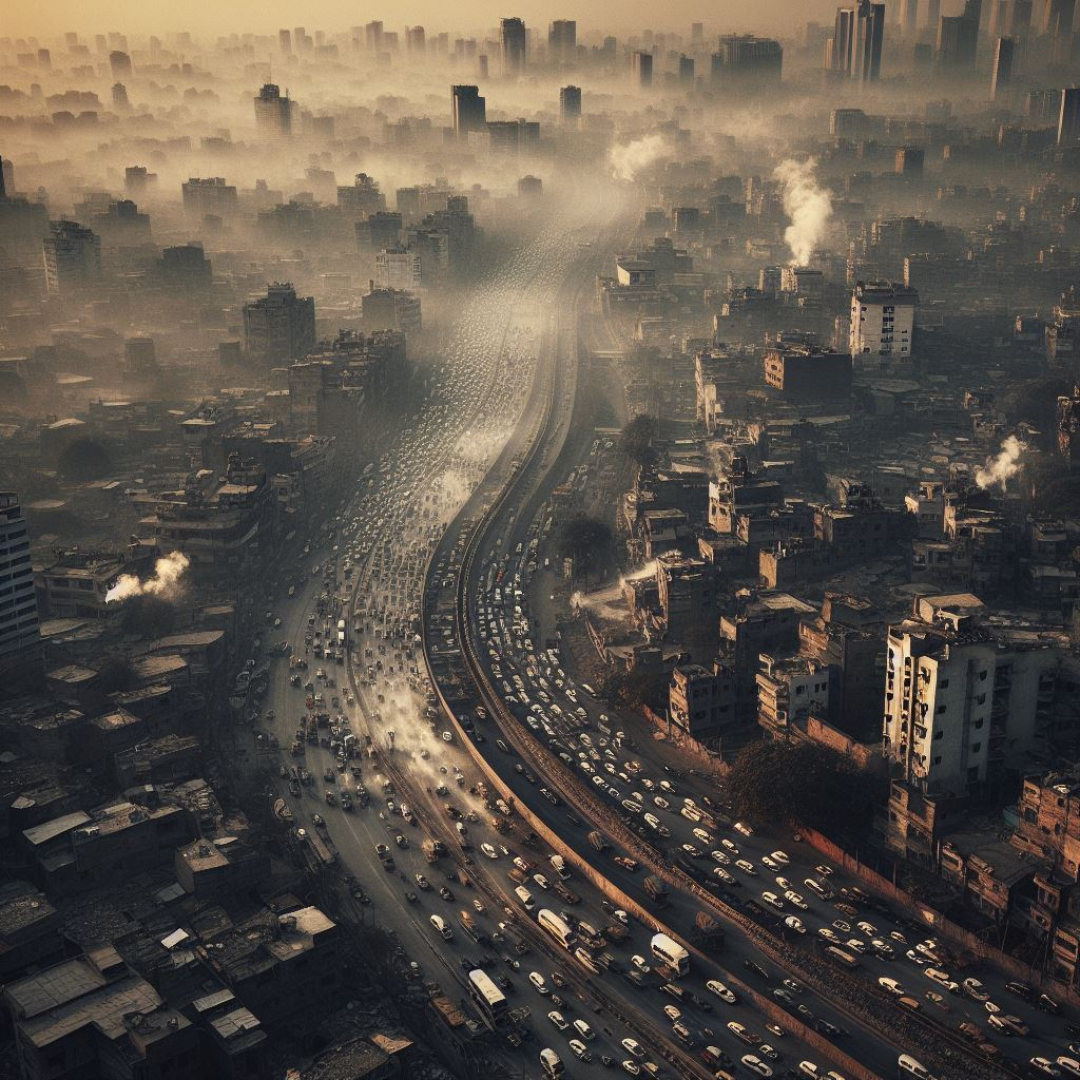The concentration of PM2.5 in the capital city of Punjab was a staggering 54.5 times higher than the annual air quality guideline set by the World Health Organization (WHO).

For consecutive days, Lahore has retained its unenviable position as the world’s most polluted city, registering an Air Quality Index (AQI) exceeding 320, categorized as ‘Hazardous’. According to the Swiss air quality monitor IQAir, Wednesday morning saw Lahore’s air quality hit a concerning low, with an AQI of 323.
The concentration of PM2.5 (particulate matter) in the capital city of Punjab was a staggering 54.5 times higher than the annual air quality guideline set by the World Health Organization (WHO).
PM2.5 refers to fine particulate matter with a diameter of less than 2.5 micrometers, a crucial metric used to assess particle levels in both indoor and outdoor environments.
The Mall road area within Lahore emerged as the most heavily impacted zone, boasting an alarming AQI of 374. Following closely were the Lahore American School area and Polo Ground in Cantt, both reporting distressing levels of air pollution.
Lahore’s air quality has persistently teetered in the unhealthy range, not only in recent months but over the past few years, ushering in what locals refer to as the ‘fifth season’ of smog. This trend usually extends from September through at least February, with air quality levels continuing to deteriorate.
IQAir’s data reveals New Delhi, India as the second most polluted city globally, with an AQI of 210, classified as ‘Very Unhealthy’. Chengdu, China secured the third spot on Wednesday morning, with an AQI of 179, denoted as ‘Unhealthy’.
The dire state of Lahore’s air quality underscores the urgent need for comprehensive measures to mitigate pollution levels. Efforts to address the sources of pollution, promote sustainable practices, and enhance air quality monitoring are imperative to safeguard public health and the environment.
Experts emphasize that concerted actions on a regional and global scale are required to combat the escalating challenge of air pollution, ensuring that cities worldwide breathe cleaner, healthier air. Vigilance and commitment to environmental conservation remain crucial in the collective pursuit of cleaner skies and a more sustainable future.